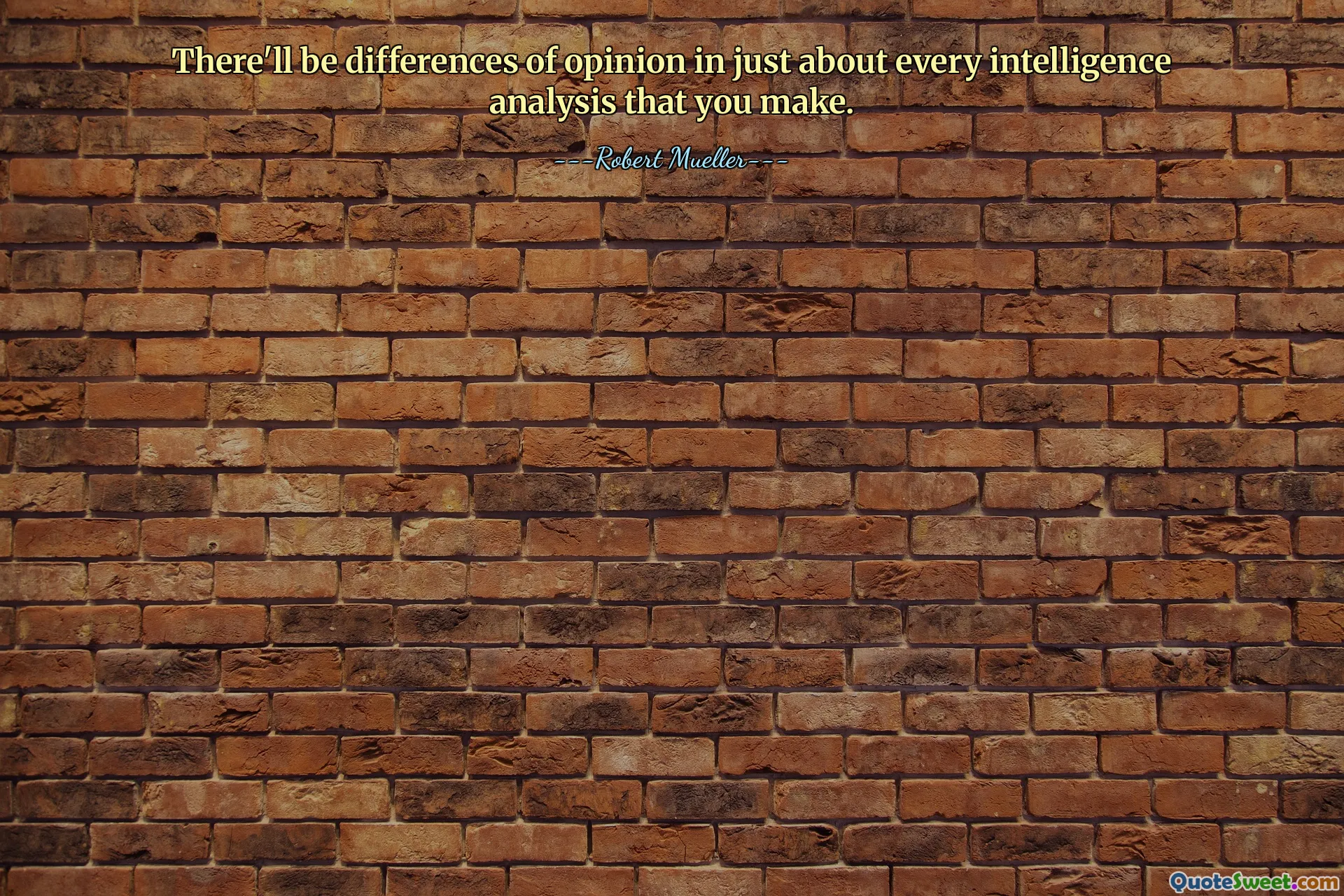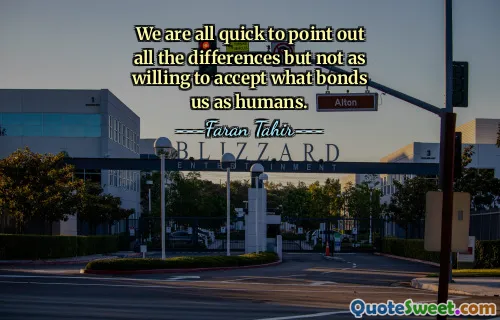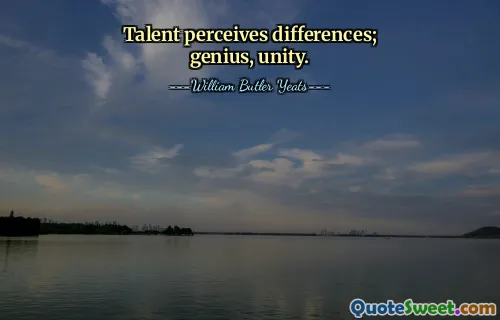
There'll be differences of opinion in just about every intelligence analysis that you make.
This quote highlights the inherent complexity and subjectivity involved in intelligence analysis. It underscores the reality that even experts within the same field can arrive at different conclusions based on the same set of data, due to varying perspectives, interpretations, and priorities. Recognizing this variability is crucial for fostering critical thinking and encouraging collaborative review processes when dealing with sensitive or strategic information. It reminds us that truth in intelligence work is often multifaceted and that no single analysis can capture the full scope of a situation. Embracing differing viewpoints as a natural and healthy part of analytical discourse can lead to more robust decision-making frameworks and better risk management. Such acknowledgment also promotes a culture of humility among analysts, urging caution against overconfidence in any single assessment. This understanding is essential in fields like national security, intelligence, and strategic planning, where incomplete information and interpretation biases can profoundly impact outcomes. Ultimately, the quote encourages analysts and decision-makers to remain aware of the potential for disagreement and to approach their work with an open mind, striving for a comprehensive understanding rather than a single 'correct' narrative. It emphasizes the importance of continuous dialogue, peer review, and the acknowledgment of uncertainty in all analytical processes. Developing this mindset can improve the quality of insights and foster a more resilient, adaptable approach to complex and dynamic environments.










